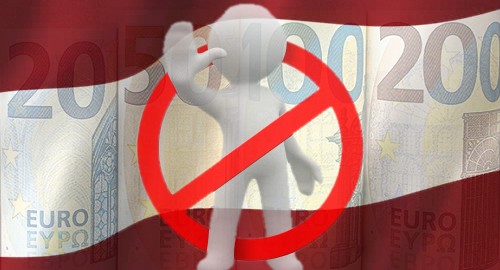 Latvia’s regulated online gambling market continues to enjoy double-digit growth as the government prepares to implement payment-blocking of unauthorized online competition.
Latvia’s regulated online gambling market continues to enjoy double-digit growth as the government prepares to implement payment-blocking of unauthorized online competition.
Figures recently released by the Lotteries and Gambling Supervisory Inspection of Latvia (IAUI) show state-licensed gambling operators generated combined revenue of €237.1m in the nine months ending September 30, a 12.2% rise over the same period last year.
Over €171m of this sum came via gambling machines, a 9% rise over the same period last year, while gaming tables were up less than 3% to €12.7m. Both verticals are facing significant tax hikes comes January 1 as the government puts the squeeze on the sector.
Latvia’s nine licensed online gambling operators contributed €38.8m to the year-to-date revenue total, a 35.5% year-on-year improvement. Casino games contributed the bulk (€27.86m, +38%) of online gambling revenue, followed by sports betting (€10.6m, +28.3%), while ‘card games’ grew 77.7% to €303k.
The IAUI’s ongoing efforts to clear a digital path for its nine licensees have continued unabated this year, with the number of blocked international gambling domains increasing by 71 to 1,186. But estimates are that unauthorized online gambling still accounts for 38% of Latvia’s overall market.
The IAUI will add new weapons to its anti-online arsenal come the new year, which will see the first enforcement of amendments to local laws that were approved this spring. As of January 1, processing payments on behalf of any online gambling site not bearing an IAUI stamp of approval will be illegal.
In November, Latvian Finance Minister Jānis Reirs announced that local financial institutions would begin testing their new payment-blocking systems this month to ensure things were all set for January’s starting gun.
The financial institutions will also have to submit detailed reports to the State Revenue Service (SRS) on the flow of money to and from unauthorized gambling providers. The SRS will then determine the size of the penalties it will impose upon these international rogues, who in all likelihood will simply ignore the sternly worded letters and carry on as usual.
That won’t be an option for local banks, credit card issuers or other payment channels, who could face fines of up to €20k for facilitating unauthorized online gambling transactions.